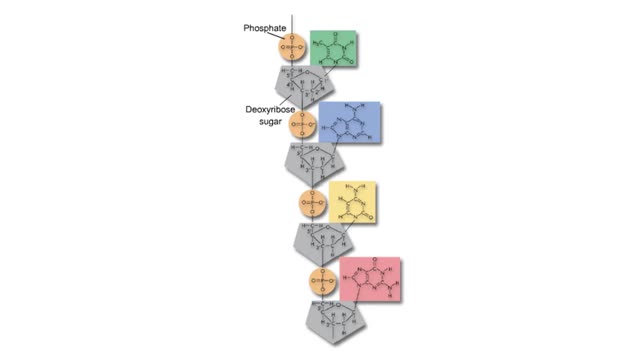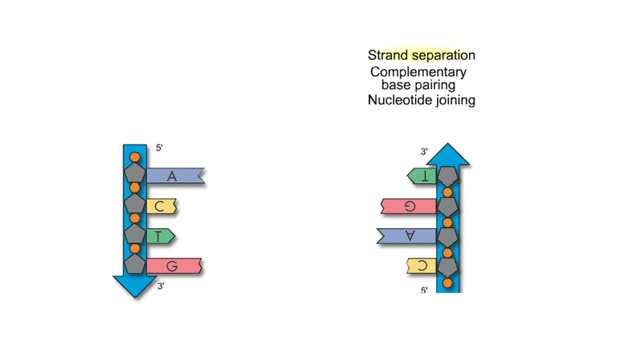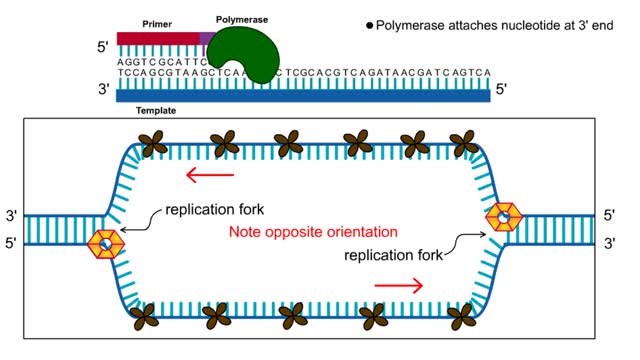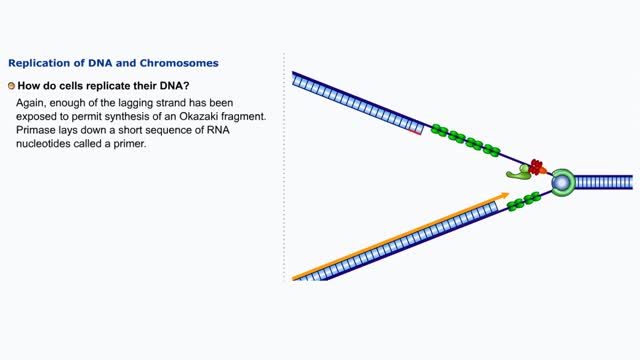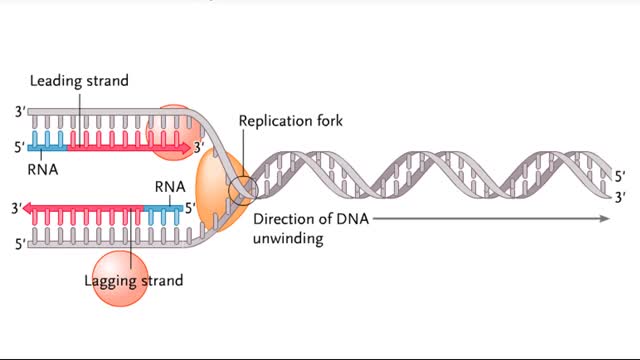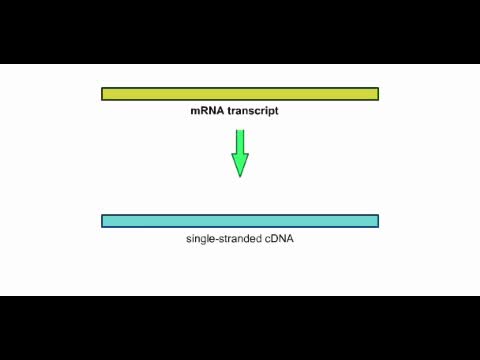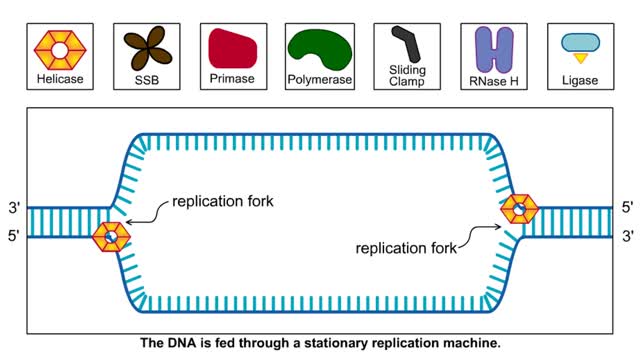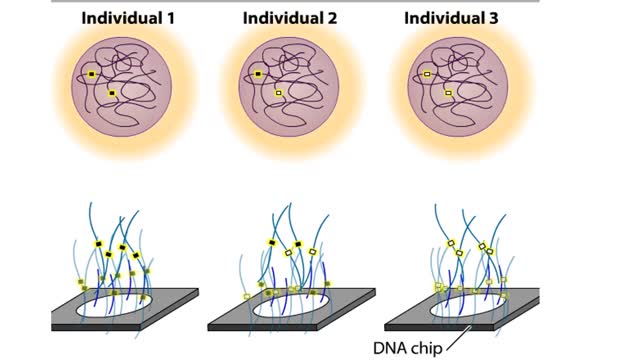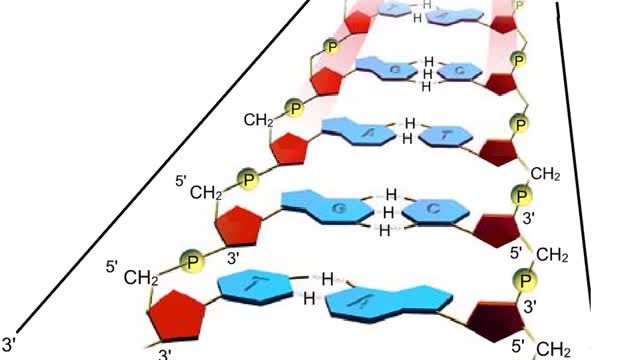Search Results
Results for: 'Single Strand of DNA'
Subunits of DNA And Semi Conservative Replication
By: HWC, Views: 7434
Adenine is a purine with a double-ring structure. In double-stranded DNA, adenine base-pairs with thymine. Guanine is a purine with a double-ring structure. In double-stranded DNA, guanine base-pairs with cytosine. Thymine is a pyrimidine with a single-ring structure. In double-stranded DNA, th...
By: HWC, Views: 10526
First step: strands are separated • Helicase unwinds the DNA double helix at the replication fork • SSBs coat the single strands to prevent reannealing • Polymerase attaches nucleotide at 3' end • Synthesis is in 5' to 3' direction DNA Polymerase: • Only extends nucleic ac...
Replication of DNA and Chromosomes/ How do cells replicate their DNA? (Animation) no Audio
By: HWC, Views: 10993
DNA replication in E. coil begins at a site called oriC where a replication bubble forms. At either end of this bubble is a replication fork. Since DNA polymerase Ill can read its DNA template strand only in the 3' to 5' direction this means that one strand (leading) can be read continuously b...
Semidiscontinuous DNA replication
By: HWC, Views: 10930
During DNA replication, one of the two DNA strands, the leading strand, is replicated continuously, or all at once, in the 5' to 3' direction. The other strand, called the lagging strand, is replicated discontinuously, or in pieces, in the 3' to 5' direction. This is necessary because DNA poly...
By: HWC, Views: 5588
This animation shows how an mRNA transcript can be used to make a cDNA strand.
The Lagging Strand in DNA Replication and Replication in Action
By: HWC, Views: 10619
The lagging strand is the strand of nascent DNA whose direction of synthesis is opposite to the direction of the growing replication fork. DNA backbones run in opposite directions, the strands in a DNA molecule are oriented antiparallel to one another. New DNA is made by enzymes called DNA...
SNP Polymorphysim Microarray Chip - How to Test a Person's DNA
By: HWC, Views: 10486
To test a person's DNA, a researcher first needs a source of tissue. Most of the cells in a blood sample are red blood cells, which lack nuclei, but there are also a number of white blood cells, which do contain nuclei and chromosomal DNA. If we could see a particular DNA sequence in these cel...
By: HWC, Views: 5004
A section from a DNA double helix The backbone of each DNA strand consists of alternating deoxyribose sugars and phosphate groups. The two strands run in opposite directions. One runs from the 5' to 3' direction, the other in the 3' to 5' direction. Think of the deoxyribose units o...
Advertisement



